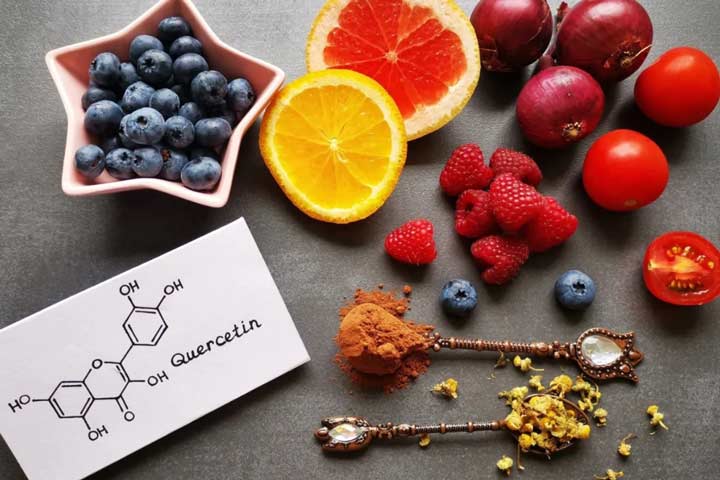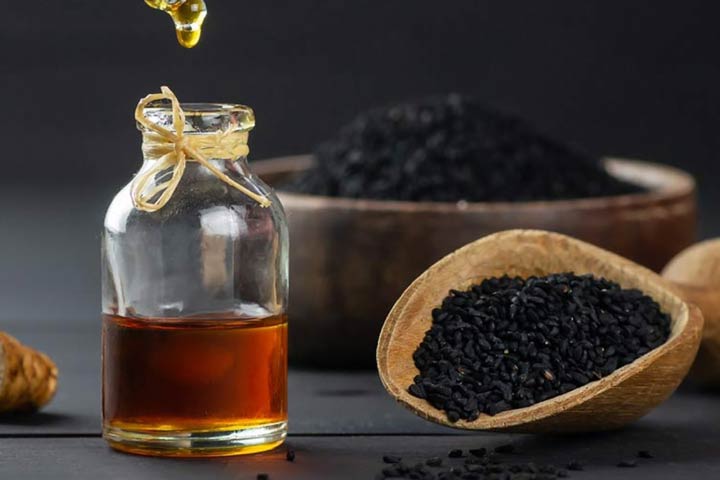Seasonal allergy, called hay fever, causes sneezing, itching, runny nose, and sore throat. Antihistamine, which has two types, chemical and natural, is an effective substance for treating these seasonal sensitivities. In this article, we have written everything you need to know about natural antihistamines.
What is an antihistamine, and how does it work?
When your body has an allergic reaction, a chemical called histamine is released, which, when it attaches to the receptors of specific cells in the body, causes allergy symptoms.
Allergy symptoms usually result from abnormal reactions of the body’s immune system. When exposed to an allergen, your immune system mistakenly perceives it as a threat and attacks it by producing histamine. Of course, histamine also attacks invaders, such as parasites. However, allergy symptoms also occur due to excessive reactions of the body’s immune system to a harmless substance.
Antihistamine drugs, usually sold without a prescription in pharmacies, prevent the action of histamine and the symptoms of allergy and inflammation caused by it.
Chemical antihistamine drugs contain various chemicals that may sometimes have side effects. Fortunately, natural antihistamines can reduce or eliminate your allergy symptoms.
Natural antihistamines
Various natural substances are rich in antihistamines. Research into the effectiveness of natural antihistamines is in its early stages, but some are promising.
In the following, we introduce some substances and plants that contain natural antihistamines.
1. Nettle
This herb, found worldwide, has been used to treat some diseases for hundreds of years. By examining this plant, researchers have promised that they have seen antihistamine effects in it.
When stinging nettles come in contact with the skin, the waxy structures on the leaves and stems release a stinging chemical that may cause a rash on your skin.
Nettle is used topically (for some diseases) and orally (for allergies). Mild side effects such as stomachache, water retention in the body, sweating, and diarrhea are possible side effects of this plant. According to some research, stinging nettle does not cause severe side effects when taken orally.
2. Vitamin C
You may have heard a lot about the benefits of vitamin C. This vitamin reduces the duration and severity of colds and, at the same time, has anti-inflammatory and antioxidant properties.
According to research, inflammation and oxidative stress are two significant effects of all types of allergies, and intravenous injection of a large amount of vitamin C reduces the symptoms of allergies. Vitamin C deficiency may also make a person prone to allergies.
By taking vitamin C supplements or foods rich in this vitamin, you can get this natural antihistamine to your body. Red and green (raw) peppers, oranges or orange juice, grapefruit or grapefruit juice, kiwi, broccoli, strawberries, and Brussels sprouts contain vitamin C and a natural antihistamine for cough.
Vitamin C usually has no specific side effects, but it may cause diarrhea, abdominal cramps, and other digestive problems if used in large amounts. In addition, taking a large part of this vitamin may make it challenging to absorb other vitamins and minerals.
3. Quercetin

Quercetin is an antioxidant found in most plants. This substance is antiallergic and has antihistaminic properties. According to research, quercetin suppresses a gene that causes allergic reactions.
This antioxidant can be found in many foods, such as dill, fennel leaves, onions, oregano, hot peppers, blueberries, spinach, cabbage, cherries, lettuce, and asparagus. Quercetin dietary supplements are also available in pharmacies.
The possible side effects of this antioxidant are headache and a slight stomachache. Of course, if you suffer from kidney diseases or are pregnant or breastfeeding, this antioxidant harms you. Most natural antihistamines are safe during pregnancy, but consult your doctor before using quercetin.
4. Wild sage plant
The forest sage plant, called “canopy,” belongs to the Cassian family. This herb is native to Europe, Asia, and North America and has been used medicinally for thousands of years.
According to researchers, this plant contains natural antihistamines and helps treat allergies. This plant can be considered a natural antihistamine for hives.
Wild sage is available as a tablet, extract, and dried herb. This plant contains a chemical called pyrrolizidine alkaloid, which is harmful to the liver, lungs, and circulatory system. Of course, there is also a type of wild sage plant that is safer and does not contain this type of alkaloid. However, this juniper plant has side effects such as flatulence, headache, itchy eyes, diarrhea, and breathing problems. Even some people are allergic to the tea of this plant. If you are allergic to chrysanthemum, calendula, and chamomile, you will likely be allergic to St. John’s wort.
5. Bromelain
Bromelain is a group of enzymes found in pineapple. This fruit has been used medicinally in Central and South America since ancient times. According to some evidence, bromelain is a natural antihistamine and anti-inflammatory helpful in treating nasal congestion.
Not-so-comprehensive research found that bromelain can penetrate the mucous membrane of the sinuses and treat sensitivity and sinus problems. This enzyme is a natural antihistamine for children and adults with seasonal allergies.
For bromelain to be effective, it must be consumed in sufficient quantities. Bromelain is abundant in the stem and center of pineapple, which is not usually consumed, so you cannot get enough bromelain by just eating pineapple fruit.
Bromelain has very few side effects, the most likely of which are stomachache and diarrhea. In addition, this enzyme may interfere with some drugs, including the common antibiotic amoxicillin.
6. probiotic
Probiotics are microscopic living organisms (bacteria and yeast) that live in our digestive system and are essential for body health.
According to some research, probiotics play a role in improving immune system disorders such as allergies. Of course, more investigations are needed to prove this feature more precisely. Also, some types of probiotics may be more beneficial than others.
Probiotic supplements are produced in different forms, such as capsules, powders, and liquids, which are usually safe to consume.
You can also get probiotics through food. Some foods containing probiotics are:
- yogurt;
- Kefir _
- Pickle;
- Dough;
- Sour cream.
The side effect of probiotics is bloating, which usually resolves after a few weeks.
7. Goon
Fenugreek is a plant that is used in Ayurvedic medicine. This plant increases the production of a type of protein called interferon. Interferon suppresses most cellular functions, including histamine secretion. Therefore, Gon prevents allergy symptoms by soothing the immune system.
8. Black seed oil

Black seed oil reduces the lungs’ inflammatory reactions and prevents histamine production. This oil is a natural treatment for allergic nasal mucosa inflammation that causes severe runny nose. Therefore, a good herb is recommended if you are looking for a natural antihistamine for a runny nose. Some other benefits of antihistamines are reducing sneezing, stuffy nose, and itchy eyes.
9. Grape seed extract
Grape seed oil is also a type of antihistamine that can prevent allergy symptoms such as itching and nasal congestion, tears, sore throat, cough, and rashes by relaxing the body’s blood vessels. So if you are allergic and looking for a natural antihistamine itch, use this extract.
Other allergy treatments
In addition to using natural antihistamines to treat allergies, you can think of alternative methods like these:
- Acupuncture: In this method, thin needles, electric probes, or pressure on specific body points are used to treat allergic reactions.
- Nasal washing: The nasal passages are wholly washed using a “net pot” and sterile saline.
- Exercise: At least 150 minutes of moderate-intensity aerobic activity or 75 minutes of high-intensity aerobic activity per week can treat allergic reactions.
The above treatments, when combined, will be very effective for treating allergies.
last word
Whenever you have an allergy, you are treated by using a natural antihistamine along with proper self-care and avoiding allergens (if possible). Proper diet and exercise also improve the effectiveness of the immune system. What method do you use to control your allergic reactions? We will be happy if you share it with us.
Warning! This article is only for educational purposes; to use it, it is necessary to consult a doctor or specialist.



